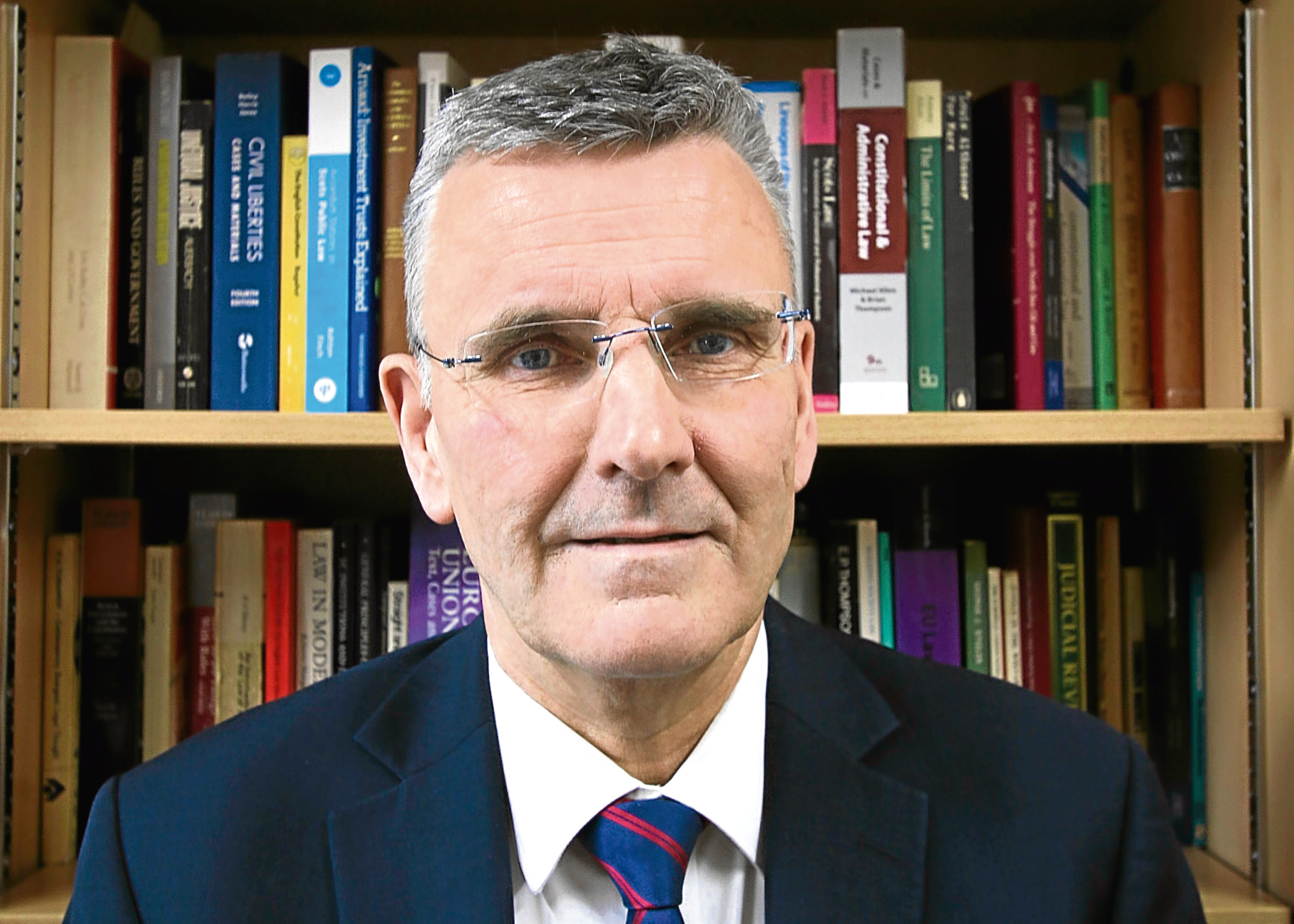Holyrood is powerless to stop the UK Government’s legislative programme for Brexit becoming law by denying its consent, says a Dundee professor.
But Alan Page, who specialises in public law, suggested the loss of the Conservative majority in the general election makes it more likely UK ministers will go to MSPs for sign-off on their plans.
Prof Page said he expects the UK Government to seek Holyrood’s agreement on the Great Repeal Bill, which transfers EU laws onto domestic statue books – as well as up to 15 other Brexit bills.
The Dundee University academic warned any UK move to “alter” powers of MSPs and Scottish ministers will “need to be squarely faced”.
“Whether an agreement can be reached sufficient to secure the Scottish Parliament’s consent – to those bills and to the Great Repeal Bill – will be the crucial question,” he said in a written submission to Holyrood’s finance committee.
“What is clear, however, is that the Scottish Parliament cannot by withholding its consent prevent the Great Repeal Bill or any other bill in the Brexit legislative programme from becoming law.”
The professor, who is due to give evidence to the Scottish Parliament on Wednesday, said he thought the general election result means it is “less likely” that Conservative ministers will not seek Holyrood backing for Brexit legislation.
The SNP have accused the Tories of plotting a power grab over agriculture and fisheries, which will be the subject of Brexit bills, by going back on a commitment that all Brussels powers that cover devolved competences would automatically transfer to Holyrood at the point of exit.
Conservative ministers have said there may be some exceptions to that based on the need to protect the UK single market.
The Sewel Convention, which is enshrined in the Scotland Act, states that Westminster must seek the approval of the Scottish Parliament when legislating on matters covering devolved areas.
UK ministers bypassed Holyrood when triggering Article 50 after the Supreme Court ruled the convention is not legally binding.
Scottish Secretary David Mundell has indicated they will see the approval of Holyrood for the Great Repeal Bill through the legislative consent process.
Stephen Tierney, a professor of constitutional theory at Edinburgh University, has told MSPs in written evidence that ignoring Holyrood over the Great Repeal Bill could trigger a constitutional crisis.
Accepting that Westminster can pass the bill without MSPs’ consent, he added: “The existence of the Sewel Convention however suggests that while it can do so legally, it is
questionable whether or not it can do so constitutionally.”
A spokeswoman for the Scotland Office said they cannot comment ahead of the publication of the Great Repeal Bill, which is expected to happen shortly after the Queen’s Speech on Wednesday.










